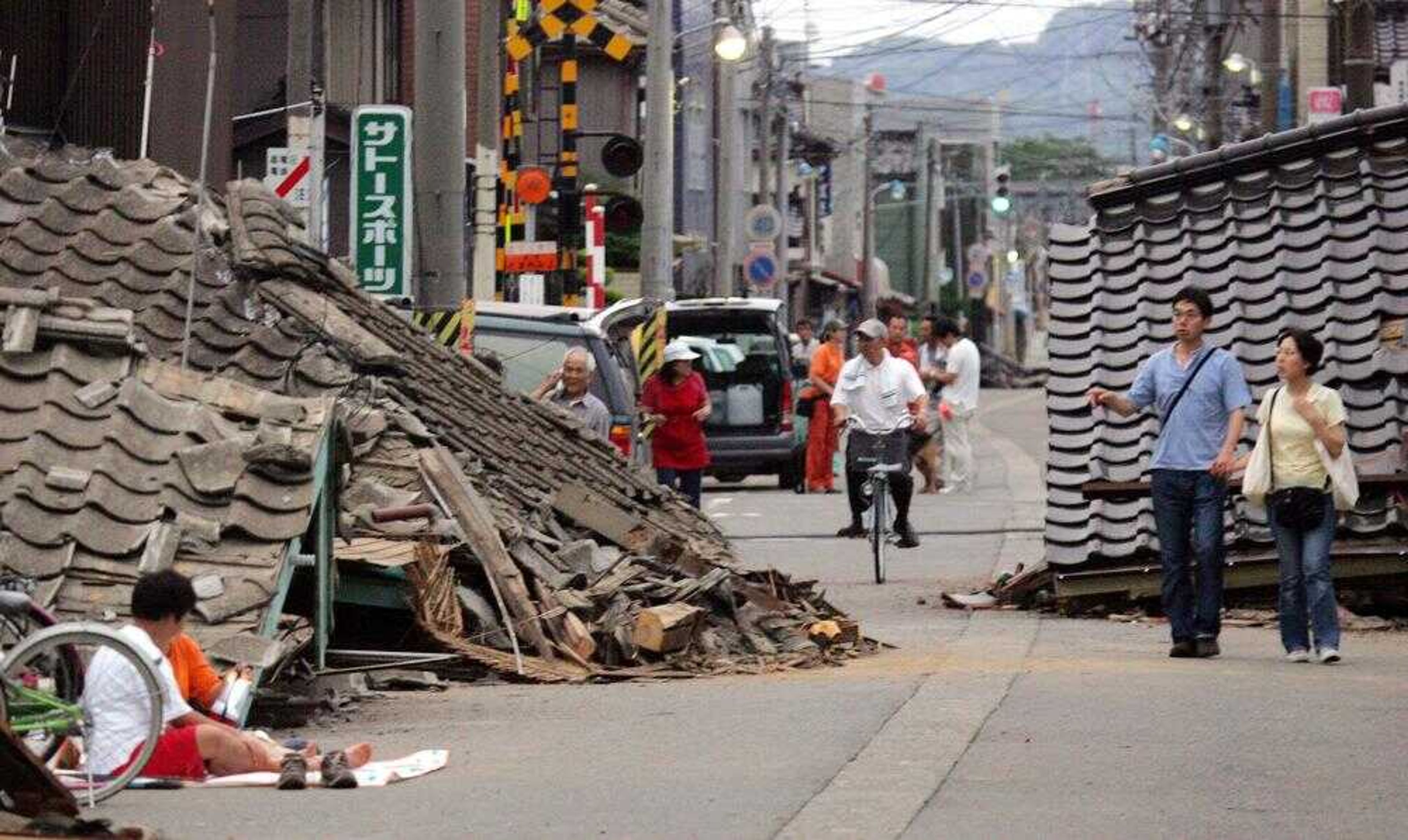KASHIWAZAKI, Japan -- The ground heaved Monday morning, buckling highways in northwest Japan and swaying buildings far away in the capital. Word quickly spread of collapsed homes and ruined roads.
News out of the world's most powerful nuclear power station wasn't so fast. First came a report of a fire at an electrical transformer at the plant. Hours later, officials announced that radioactive water had leaked from one of the reactors and spilled into the Sea of Japan.
The 6.8-magnitude temblor killed at least 8 people and injured more than 900 as it toppled hundreds of wooden homes. With highways ripped up and bridges destroyed, officials struggled to get emergency supplies to the region.
Some 10,000 people fled to evacuation centers as aftershocks rattled the area. Tens of thousands of homes were left without water or power.
The quake triggered a fire in an electrical transformer and also caused a leak of radioactive water at the Kashiwazaki Kariwa nuclear power plant, a sprawling complext that is the world's largest in terms of electricity output.
The leak was not announced until the evening, many hours after the quake. That fed fresh concerns about the safety of Japan's 55 nuclear reactors, which supply 30 percent of the quake-prone country's electricity and have suffered a long string of accidents and cover-ups.
About 315 gallons of slightly radioactive water apparently spilled from a tank at one of the plant's seven reactors and entered a pipe that flushed it into the sea, said Jun Oshima, an executive at Tokyo Electric Power Co.
He said it was not clear whether the tank was damaged or the water simply spilled out.
Officials said there was no "significant change" in the seawater near the plant, which is about 160 miles northwest of Tokyo. "The radioactivity is one-billionth of the legal limit," Oshima said of the leaked water.
Eliot Brenner, a spokesman for the U.S. Nuclear Regulatory Commission in Washington, said the agency told Japan's government it was ready to provide assistance if needed but had not received any request for help.
Brenner said he didn't have details about the incident.
But a U.S. nuclear industry official, who spoke on condition of anonymity because the incident was a Japanese affair, said the transformer fire and water leak occurred in systems linked to different reactors.
In Kashiwazaki city, the quake reduced older buildings to piles of lumber. Eight people in their 70s and 80s -- five women and three men -- died, most of them crushed by collapsing buildings, the National Police Agency said.
Kyodo News agency reported more than 900 people were hurt, with injuries including broken bones, cuts and bruises. It said 780 buildings sustained damage, and more than 300 of them were destroyed.
"I got so dizzy that I could barely stand up," said Kazuaki Kitagami, a worker at a 7-Eleven convenience store in Kashiwazaki, the hardest-hit city. "The jolt came violently from just below the ground."
The area was plagued by aftershocks, but there were no immediate reports of additional damage or casualties. Near midnight, a 6.6-magnitude quake hit off the west coast, shaking wide areas of Japan, but it was unrelated to the Niigata quake to the north and there were no immediate reports of damage.
Connect with the Southeast Missourian Newsroom:
For corrections to this story or other insights for the editor, click here. To submit a letter to the editor, click here. To learn about the Southeast Missourian’s AI Policy, click here.







